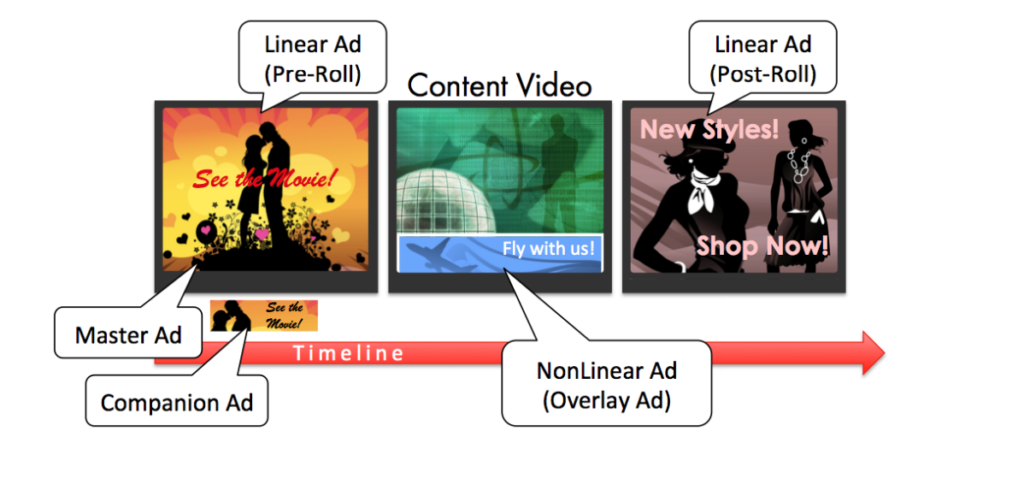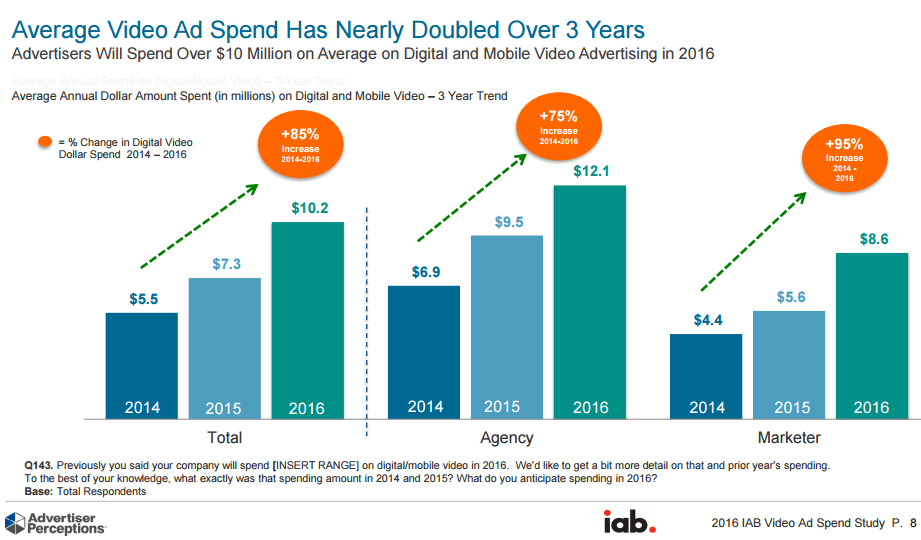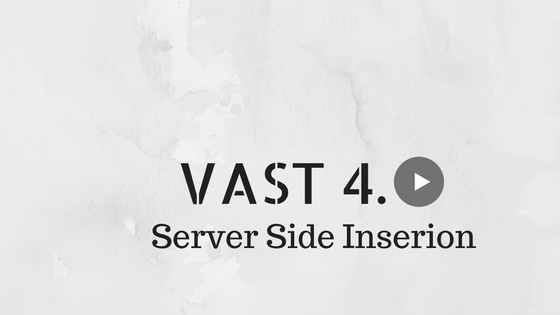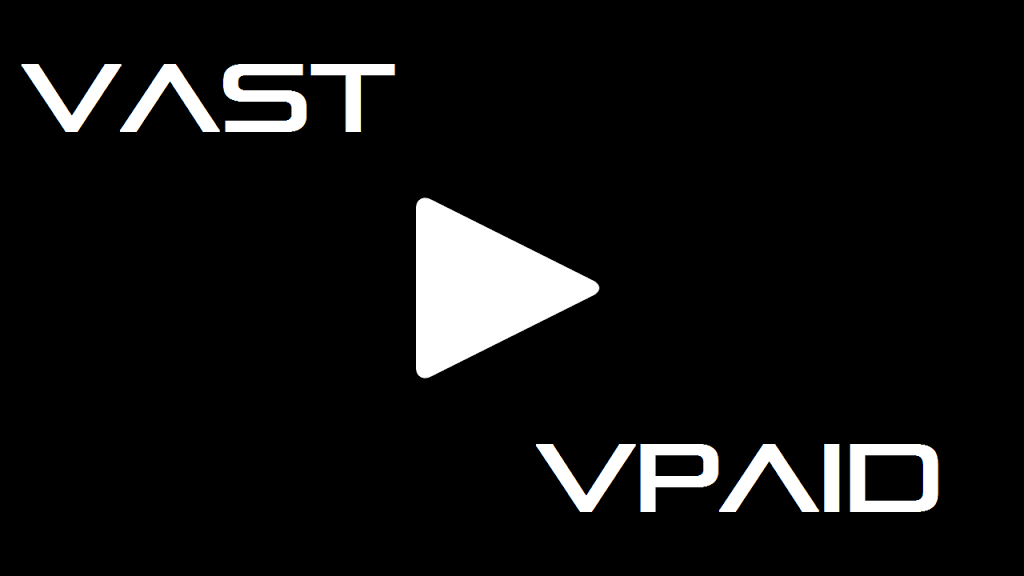Over the years , Online advertising is moving from display to video , And Video ad spending is increasing.As per recent report from eMarketer Digital Video Advertising to Grow at Annual Double-Digit Rates US digital video ad spending will continue to grow at a pace that exceeds TV advertising growth through 2020.
– See more
There are four versions of VAST released by IAB, first version which is released in 2008 was first of its kind and which start the process of standardization of Video serving template.
Various kind of update were made over the years from increasing the reporting,tracking to advancement of the functionality with different types of file support.
In the latest version VAST 4.0, new functionality which is know as ad stitching or server side stitching is introduced which will help publisher to run bypass the ad blocker.
Before understanding all different format Of VAST , Please read all terminology used in below table:
Video Ad-Serving Template (VAST) :A universal protocol for serving in-stream video
ads, permitting ad servers to use a single ad response format across multiple compliant
publishers/video players
Video Player-Ad Interface Definition (VPAID) : A method of communication between the ad itself and the Video player in which it is displayed. This
communication is important because both Linear and Non-Linear video ads can be interactive, and such user
interaction will generally affect the activity of the Video player. For example, when a user clicks on an overlay ad
the user may be presented with more information about the advertiser, while the video content is expected to
pause. Currently, each publisher and technology vendor has implemented this type of communication in a nonstandardized
way, resulting in additional work for all parties when bringing campaigns live.
Companion Ad: Commonly text, display ads, rich media, or skins that wrap around the video
experience. These ads come in a number of sizes and shapes and typically run alongside or
surrounding the video player.
InLine Ad: VAST document that includes all the elements necessary to display the visual experience of the ad.
Linear Video Ad: The ad is presented before, in the middle of, or after the video content is
consumed by the user, in very much the same way a TV commercial can play before, during or
after the chosen program.
Non-linear Video Ad: The ad runs concurrently with the video content so the users see the ad while viewing the
content. Non-linear video ads can be delivered as text, graphical ads, or as video overlays.
Primary Ad Server: First ad serving system called by the Video Player or other framework. It is assumed that in most
cases a publisher will make all initial ad requests through their Primary Ad Server (whether homegrown or third party), then
redirect to other ad severs as needed.
Secondary Ad Server: Ad server used by an ad network or by the buyer of ads to serve creative, track results and
optimize creatives.
Wrapper Ad: VAST document that points to another VAST document from a different server.

Difference Between different VAST Version – Parameter Difference
| VAST 1.0 | New root node “VAST” Not Present | No Support for interactive MediaFiles ; | VASTAdTagURI was used for AdTag calling | Companion ads, Non-linear ads, and media delivery files are not supported |
| VAST 2.0 | Suppport Linear Ads (Pre,Mid, Post roll); | Suppport Non-Linear Ads Overlays Ads; | Support for companion Ads | Change VASTAdTagURL to VASTAdTagURI |
| VAST 3.0 | Allow Ad Pods | Support Skippable Ads | Define Passback Ads | New Event Tracking Added: Skip,Progress |
| VAST 4.0 | Ad Stiching (Insertion of Ad within the Content) | Support for conditional Ads | Suppport Ad Categories | Support For Mezzanine file and Server-side support: |
Note: mezzanine file is very large and cannot be used for ad display, but ad-stitching services and other ad vendor use it to generate files at appropriate quality levels for the environment in which they play.
Note: With Each version VAST is upgrade with additional functionality so if in previous version of VAST something is supported or present it means it will by default supported or present.
Reference:
- http://www.iab.com/wp-content/uploads/2016/01/VAST_4-0_2016-01-21.pdf
- http://www.iab.com/wp-content/uploads/2015/06/VPAIDFINAL51109.pdf
- http://www.iab.com/guidelines/digital-audio-ad-serving-template/
- http://www.iab.com/wp-content/uploads/2015/06/VPAID_2_0_Final_04-10-2012.pdf
- http://www.iab.com/wp-content/uploads/2015/06/VASTv3_0.pdf
- http://www.iab.com/guidelines/digital-video-player-ad-interface-definition-vpaid-2-0/
- http://www.iab.com/wp-content/uploads/2015/06/VMAP.pdf
- https://www.youtube.com/watch?v=4tNj3YbI45c
- https://www.jwplayer.com/blog/vast-vpaid-standardizing-online-video-ads/

















